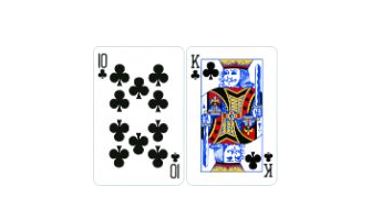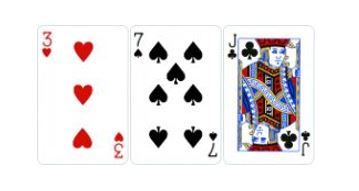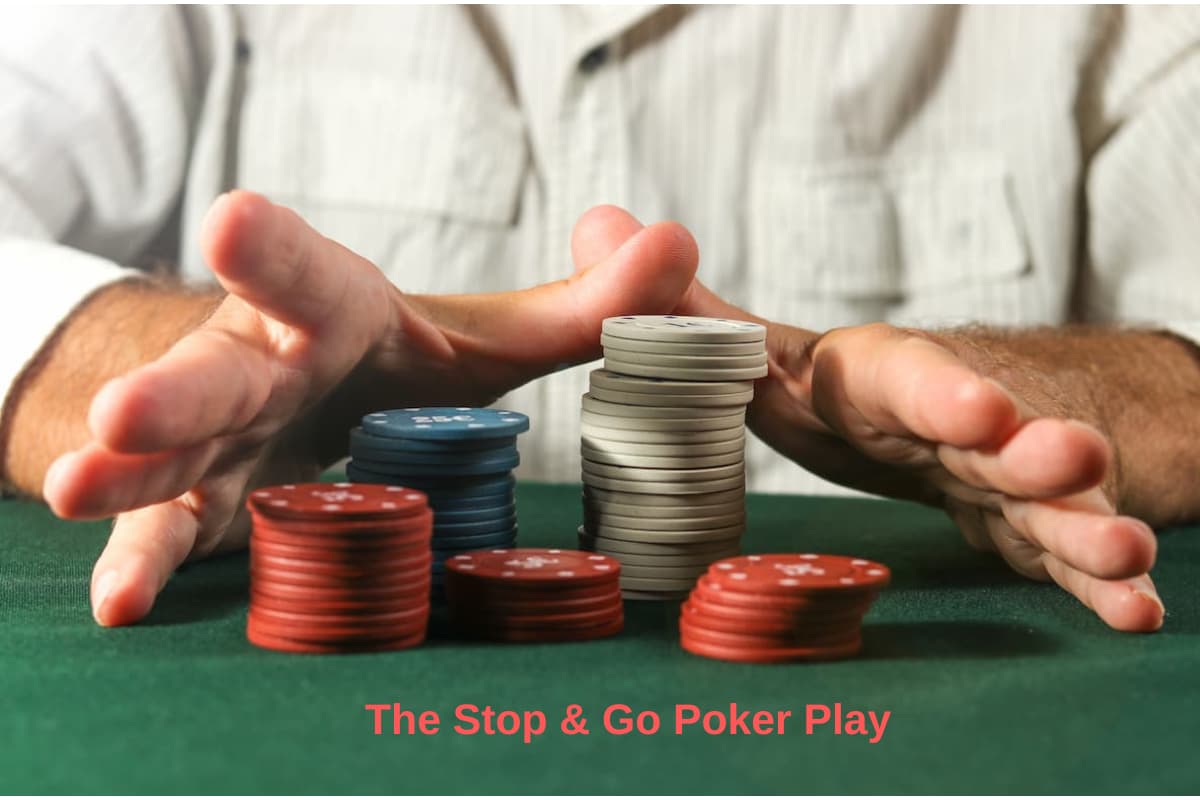Tournament poker is a minefield. It requires multiple skills to navigate your way through it, chip up and ultimately bink a win. Unfortunately, tournament poker also involves you playing a short stack sometimes. It’s not what we want but its inevitable, you will get short stacked in tournaments. Getting your stack back up to average or better can be challenging. You have to know push/fold strategy and either run good to hold up to get back in the game.
One move that can help you chip back up is the stop and go play. It’s a highly effective tournament move when exercised properly. This article will explain what the stop and go poker play is and when to use it , so you are better prepared next time you play a low to mid stakes poker tournament.
What is the Stop and Go Play?
It is where a player calls a raise from the blinds, committing a decent amount of his stack and then shoves the flop. The idea behind this is that if you re-shove pre-flop, you have less fold equity as most raising hands will have lucrative price to call. By flat-calling pre-flop and shoving on the flop, you reduce the chance of getting a call slightly. Your opponent is only going to make a pair around 30% of the time. Secondly, if they have a small pair, they may fold when all overcards flop.
The stop and go play is a great move for low stakes tournaments as you can increase your stack a significant % without actually being all in and called.

Example of the Stop and Go
You are short-stacked with 2,000 chips. The blinds are 150/300 and you are in the big blind holding:

Everyone folds to the cut-off who raises to 800, they fold to you in the big blind.
If we re-raised all in here, our opponent would certainly call. He only has to call 1,200 more for a pot of almost 3,000. However, you decide to flat call.
You move all in on the flop of:

Consider the situation for your opponent. He has to call 1,200 for 2,950. If he has anything less than a jack, he may pause for thought. Consider a hand like pocket 5s. If he thinks we have hit or have a higher pair, he is drawing very slim to just 2 outs and have around 8% chance. Or, he may have an ace high hand like A-10 and fold too. Our opponent folding has resulted in:
- Avoiding an all in pre flop showdown
- Winning the pot without contest
- Increasing our stack almost 50% without being all in and called
Key Points to Remember
The stop and go play is great but you need certain ingredients in order to pull it off, otherwise you are just giving away precious chips. You need to do it when you’re short stacked (there’s no point doing this with a decent stack). It must be done out of position so you can act first after the flop. You also need to make sure that the pot is heads up.
Risking this play against multiple opponents is a disaster. The more people in the pot, the greater chance someone has hit and will call you. It’s also better best to do this with hands you think are questionable and are either a coin flop to your opponents, or behind. There’s no value to this play if you actually have a premium hand like ace king or pocket aces.
You are best served doing this at low to mid stakes. Most high stakes tournament players are familiar with this move and will make the post flop call more liberally. It also works better on the softer sites, like sports betting ones as opponents aren’t aware of advanced strategy plays like this.
Final Thoughts
The stop and go poker play is a great tactic to use in tournaments. It’s another way to steal blinds and antes and keep yourself going. By employing this move, you may have a few more chips for your next all in and give you a platform for the rest of tournament. It’s a fun move to use and also feels good when you pick it up without a call.
If you enjoyed this article, perhaps you’d like to read our poker tournament strategy tips or small ball articles. Alternatively, if you are interested in some poker support, fill in your email below and we will be in touch.
This article was written in 2020 and has been updated.



